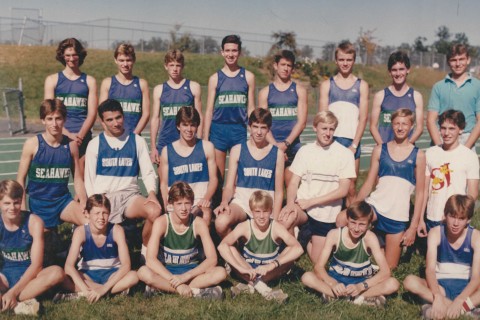
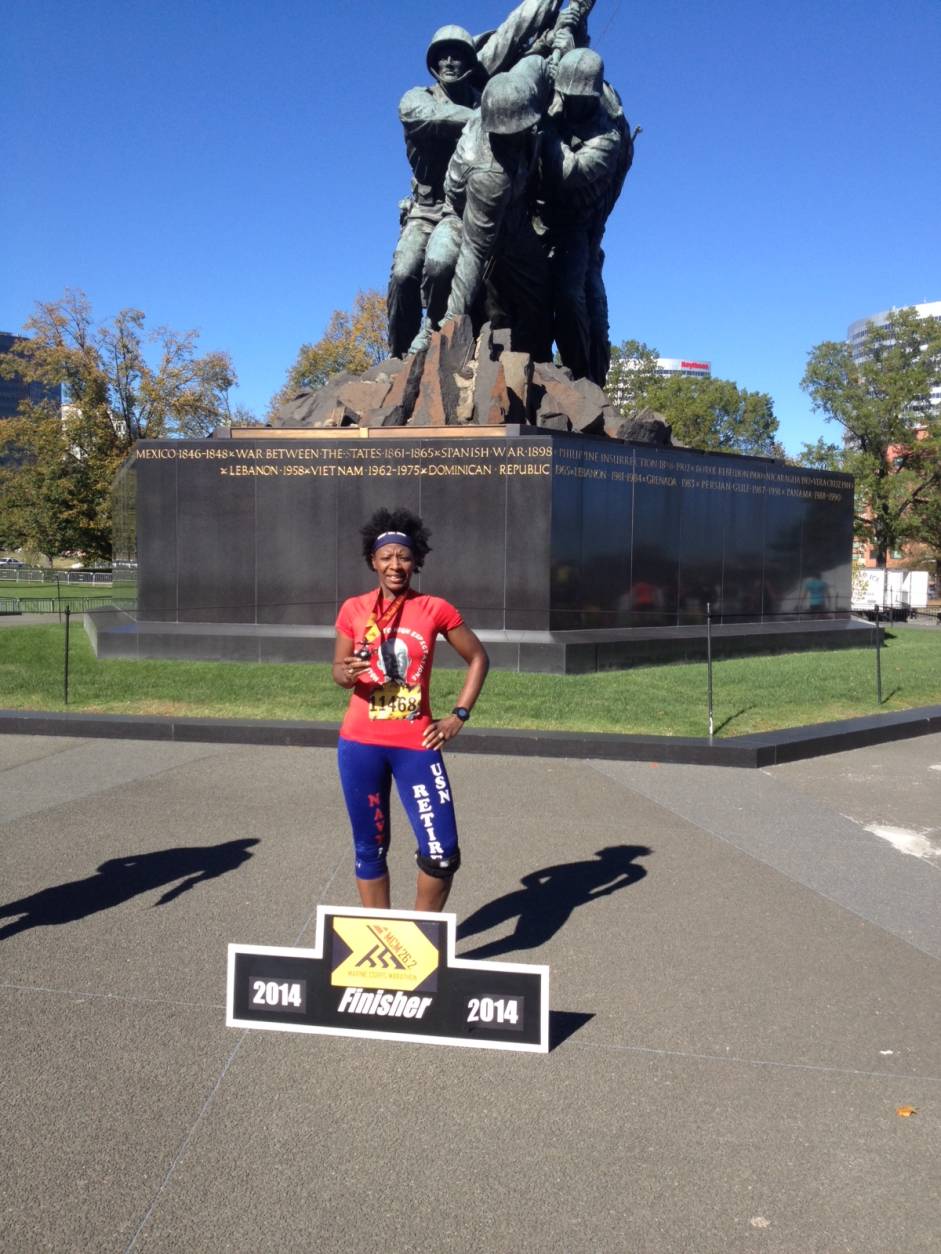

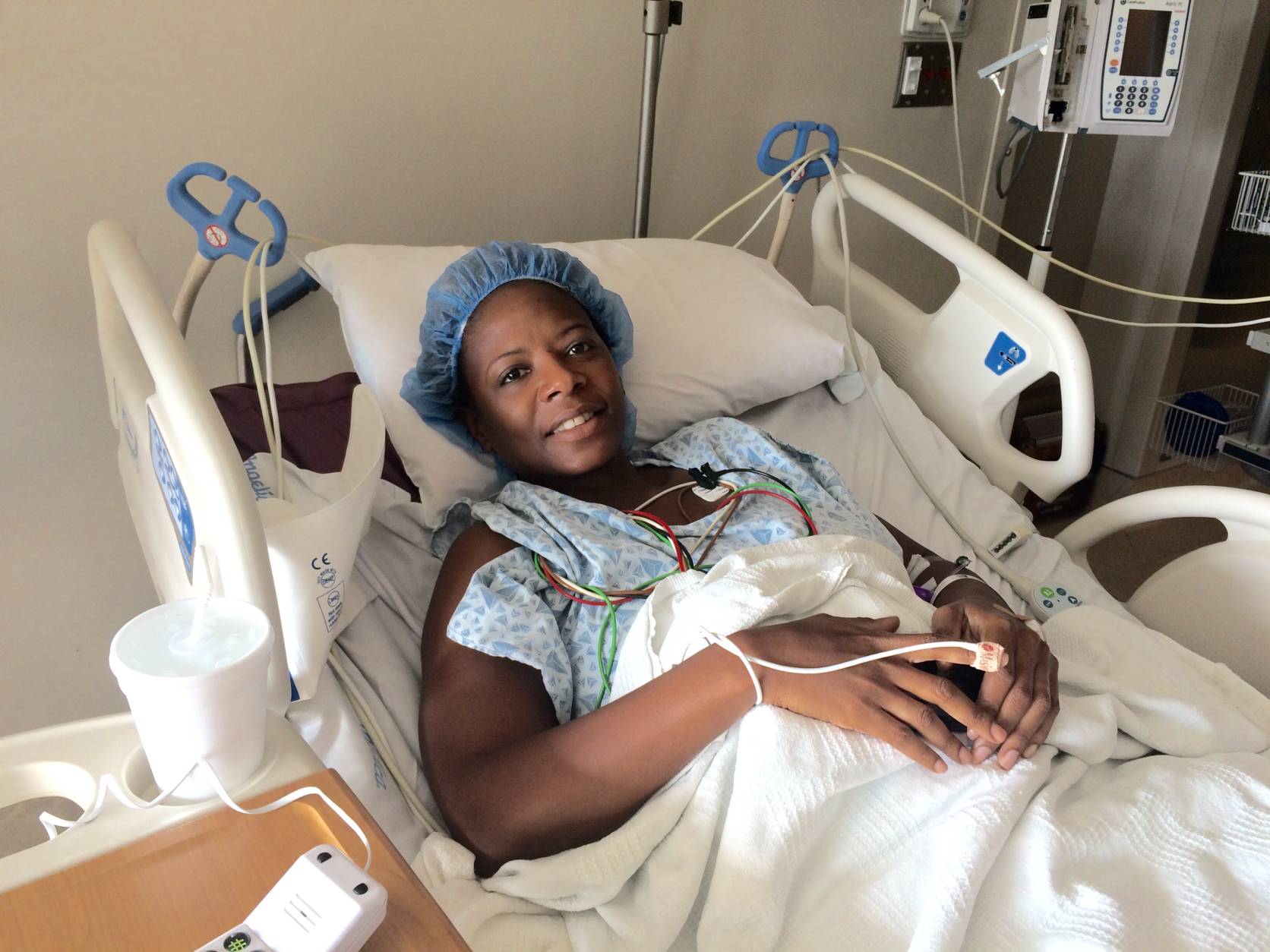
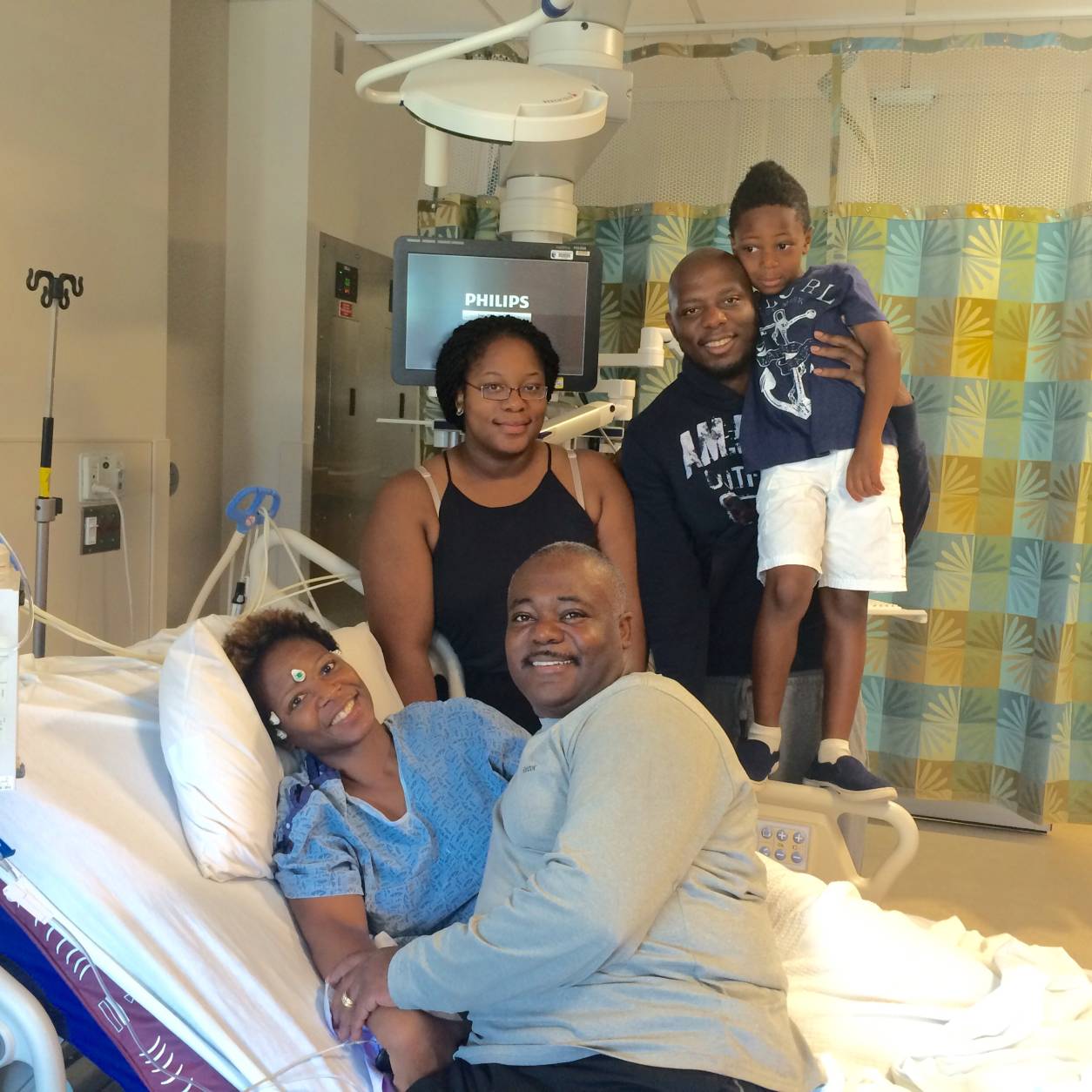

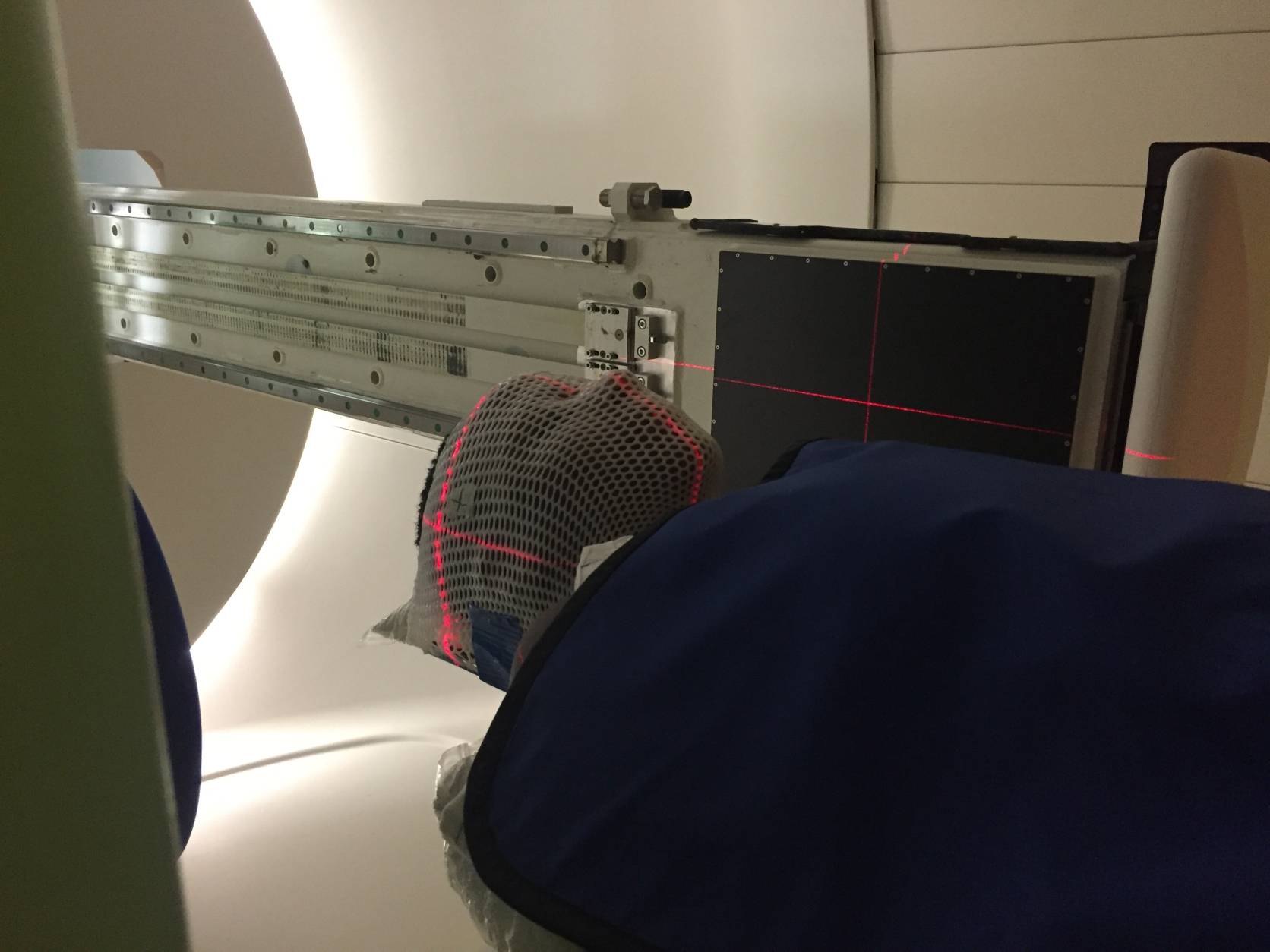

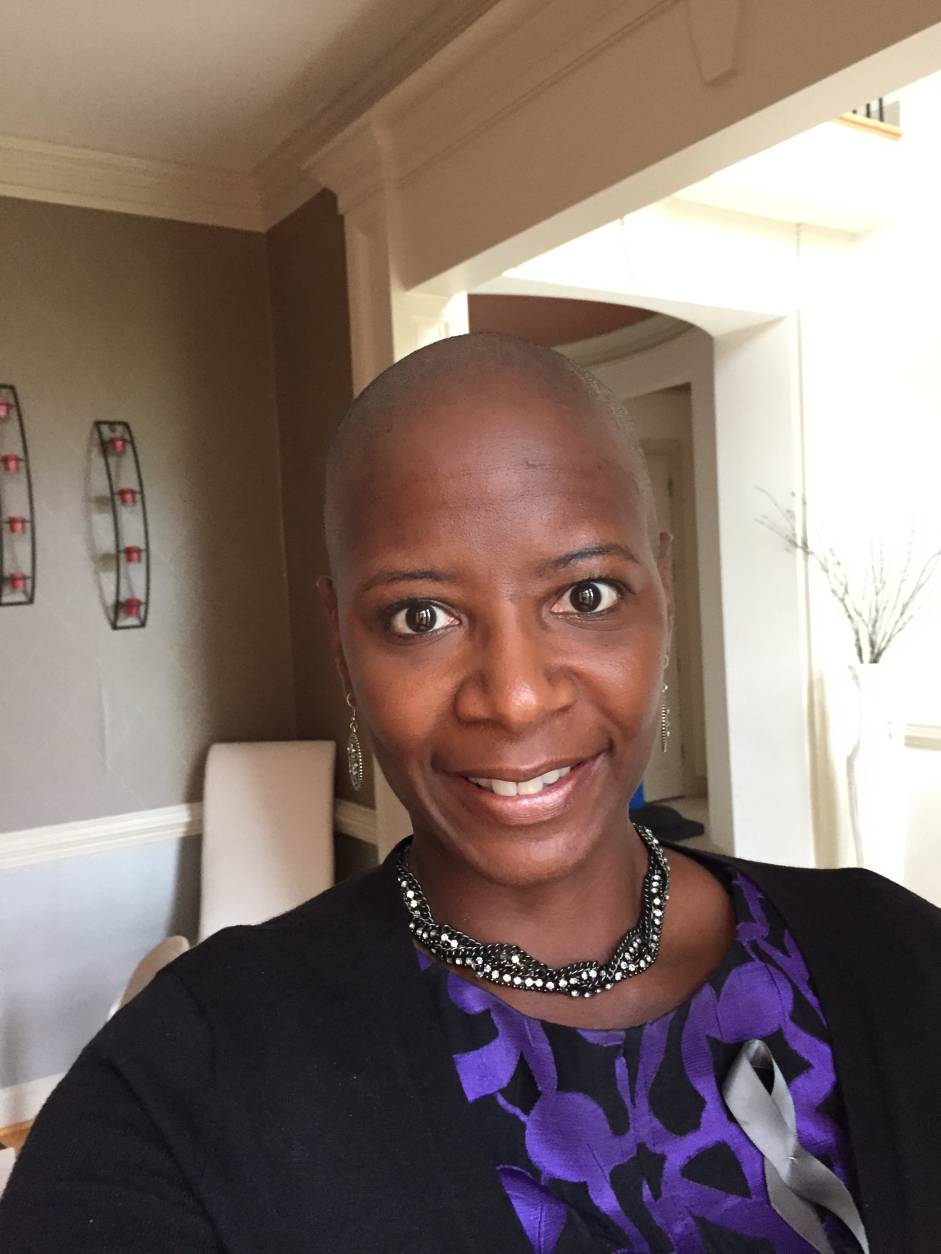




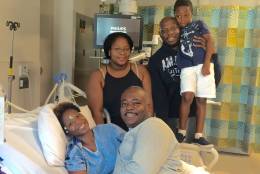
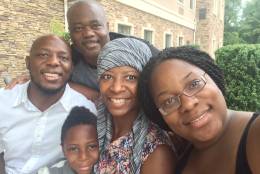
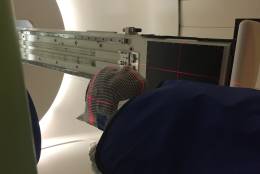

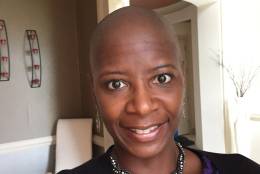
Editor’s note: All this month leading up to the Marine Corps Marathon, WTOP’s Jamie Forzato is bringing you stories of runners who have endured loss, persevered through personal struggles and found hope.
WASHINGTON — Any marathoner can tell you that training to run 26.2 miles can be mentally and physically exhausting. Runners plan months beforehand and stick to a strict exercise regimen, gradually increasing strength and stamina until the big day.
But Samaria Hunter’s plans were suddenly interrupted two years ago, when doctors revealed she had been suffering from a life-threatening condition for more than a decade.
It was October 2014 — the 39th Marine Corps Marathon. Thousands of runners, bounding with nervous energy, burst through the starting line. Among them was 45-year-old Hunter, a retired lieutenant commander in the U.S. Navy.
The Suffolk, Virginia, resident had prepared for that MCM just like she had the year before. But trouble came at mile nine.
“My knee buckled,” she said. “My husband and everybody else were telling me to get off the course. But I stayed on the course the entire time. I ran-walked the last 17 miles.”
After finishing, she drove back to the Hampton Roads area and checked into an emergency room. Something wasn’t right.
“[The doctors] thought I had some type of leg issue,” she said.
Since 2000, Hunter had struggled with weakness and pain on the left side of her body. At the time, doctors ruled out a neurological problem. No one thought her brain was the cause.
“What I know now, that I did not know then, is when they did the brain study in 2000, they did not use contrast on the MRI.”
Even after the episode during the marathon, her doctors believed she had just injured herself.
But the pain, leg spasms and migraines intensified until July 2015. An MRI with contrast confirmed a mass on her brain, which had likely been growing undiagnosed for 15 years.
“The spasms, we now know, were seizures. It made perfect sense. I was actually a textbook case for the type of brain tumor I had, which was a meningioma on my right frontal lobe,” she said. “By the time it was discovered, it was already the size of a plum.”
The mass was benign, not cancerous, but still life-threatening. She decided to undergo awake brain surgery at the Duke University Medical Center’s Brain Tumor Center in August 2015.
“I was really at peace going into surgery,” she said. She could feel and hear everything around her as the surgeon opened up her skull and removed as much of the tumor as he could. But doctors warned her family that there was a chance Samaria would be paralyzed.
“While the doctor thought he needed me to guide his hands, I really believe he didn’t need me. God was already with us,” she said.
Sure enough, she walked out of the hospital a day later. She returned to running a month after surgery and began training for this year’s marathon. She built up her strength, one step at a time. But in May of this year, an MRI revealed the tumor had grown.
“I had already done all this practice and preparation for the Marine Corps Marathon and found out that I had to enter radiation,” she said.
It’s a major setback, but she is determined. Radiation treatment began last month, and she plans to complete the last round of radiation just three days before the marathon. As she juggles treatments and a grueling training program, she is monitoring her body and aware of the risks of brain swelling.
“I have continued to run at least four or five days a week, with at least one being a long run.”
She says her faith keeps her going. “The night we were in the hospital and they came to me and said, ‘You have a mass on your brain,’ I immediately thought my life was going to be very short. As I was crying, my husband looked at me and said, ‘We believe in God.’ In an instant, that changed for me. Everything changed for me. It wasn’t ‘Why me’ but ‘Why not me?’”
She says this is a chance to let her test become her testimony. Despite the challenges, she feels abundantly blessed.
“Yes, some days are harder than others. For me, it is just keeping one foot in front of the other.”
She plans to launch a nonprofit next year for brain tumor awareness and research.



